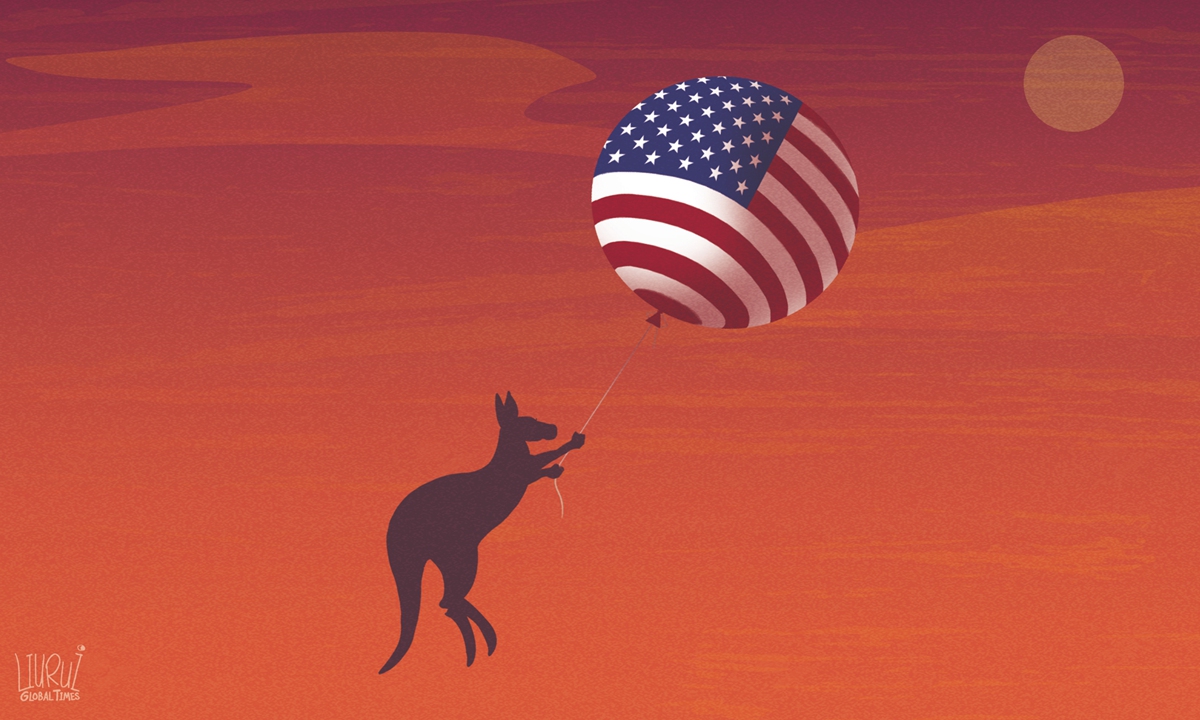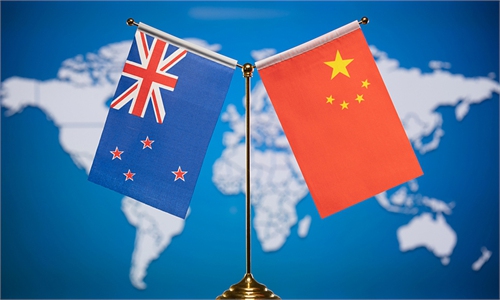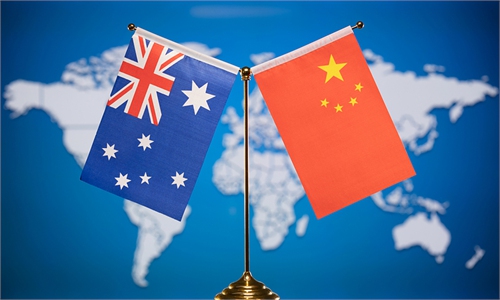What does a new US govt mean for China-Australia ties?

Illustration: Liu Rui/GT
With the completion of the power transfer between US President Joe Biden and his predecessor Donald Trump, the international community now has new expectations for the future of China-Australia relations.
Some people think that Australian Prime Minister Scott Morrison's government, which has been acting as an anti-China vanguard, would choose to quickly change his policy toward China and improve China-Australia relations. Yet others believe that Canberra would follow Washington's China policy and not rashly make obvious changes in the uncertain period of the US' power transfer. As a result, the "old questions" about whether or not Australia has clear policies toward China or it has independent diplomacy have emerged again.
First, Australia's China policy is based on the US-Australia alliance and lacks the basis of independence. Practice has shown that when China-US relations improve, Australia will strengthen its cooperation with China, Conversely, when China-US relations encounter challenges, Canberra adjusts its China policies to follow Washington.
Australia takes the so-called alliance diplomacy as its main theme and tries to maximize the benefits of its relations with China through the US' security guarantee. The wavering of this policy not only shows Australia's lack of autonomy in its diplomacy with China, but also reflects its opportunistic and short-sighted China policies overall.
Second, Australia has an incorrect perception of itself and insufficient understandings of China. The Morrison government claimed that for Australia to be a so-called middle power and defender of the liberal international order, it needs to stress issues such as the South China Sea, the COVID-19 pandemic, and Xinjiang governance. This was done under the guise of safeguarding international fairness and justice. But in reality, it interfered in China's internal affairs.
But Morrison's groundless accusations were based on the concept that Australia should be the spokesperson of the West in the Asia-Pacific region. But Morrison totally ignored the facts. In fact, Australia does have intellectuals and experts that know China well, but these rational perspectives are often suppressed by nationalist impulses. Voices calling for the collaboration with the former Trump administration to encircle and bash China were widely spread.
Undoubtedly, the external environment of China-Australia relations has changed due to the US' power transfer. Although the Australian government often claims that its foreign policy decisions are based on the assessment of national interests, it must be asked: What exactly are Australia's national interests? Do following the US' trade war with China and confronting its biggest trading partner apply to its national interests so the country suffers economically? Of course not.
Australia understands that it is the biggest beneficiary of economic and trade cooperation with China. On the one hand, it needs to be understood that the deterioration of China-Australia relations occurred in the context of the Trump administration's "trade war" against China. There is no fundamental conflict of national interests between China and Australia. Quite the opposite, cooperation between the two countries has been greater than their differences for a very long time.
On the other hand, in an era characterized by the COVID-19 pandemic and gloomy world economic development, Australia has not benefited from confronting China with the US. Nor has it achieved bigger says as a middle power in regional and global governance.
On the contrary, with the deterioration of relations with China, Australia's economic and trade interests have been seriously damaged. It has experienced historic decline in its exports of energy resources and agricultural products to China. International education and tourism development have also been massively damaged.
China and Australia are both important countries in the Asia-Pacific region, and cooperation between the two countries will not only benefit their domestic development, but also enhance the development of the whole region. In the long history of development, China and Australia have been friends rather than enemies for most of the time. This is a fact that Australia needs to treat with a more objective and pragmatic mindset.
At present, China and Australia are facing many similar issues of development, and there is room for cooperation between the two in the field of international governance. China and Australia share important common interests in promoting peace, stability and development in the Asia-Pacific region. Both countries have long-standing communication and coordination with multilateral mechanisms and institutions such as the United Nations, the G20, the Asia-Pacific Economic Cooperation (APEC), the East Asia Summit, and the Pacific Islands Forum. China and Australia make joint efforts and contributions to dealing with issues including the spread of infectious diseases, weapons of mass destruction, the global economic crisis, and global climate governance.
What is important to the smooth development of China-Australia relations is that both sides can follow the principles of mutual respect, equality and mutual benefits, enhance mutual trust through dialogue, achieve win-win cooperation, and build a friendship through exchanges.
Facing the changes in the world not seen in a century, the improvement of China-Australia relations has already faced difficult external conditions. Australia needs to re-evaluate its policy toward China that had been under the influence of the Trump administration. It is Australia that needs to decide whether to continue the confrontation with China, or to resume positive dialogues.
The author is executive deputy director of the Center for Australian Studies from China University of Mining and Technology. opinion@globaltimes.com.cn



